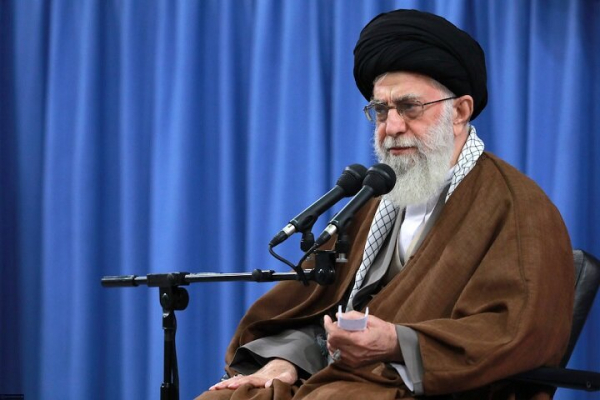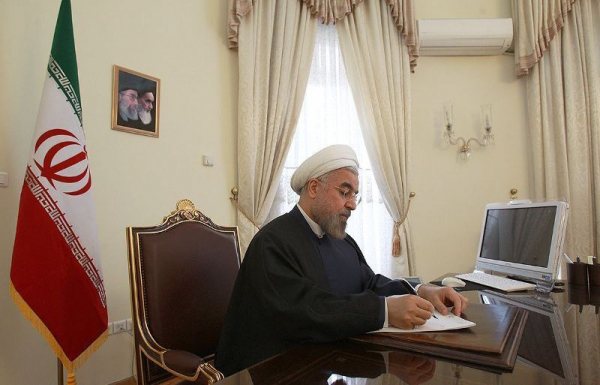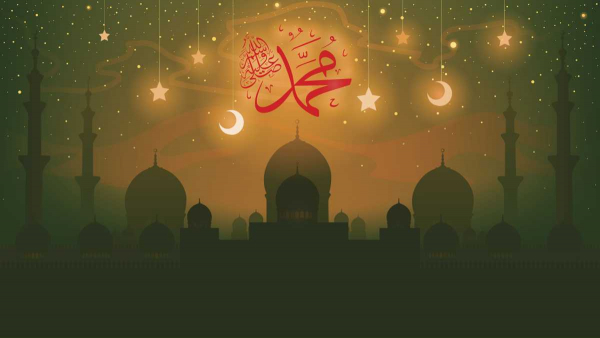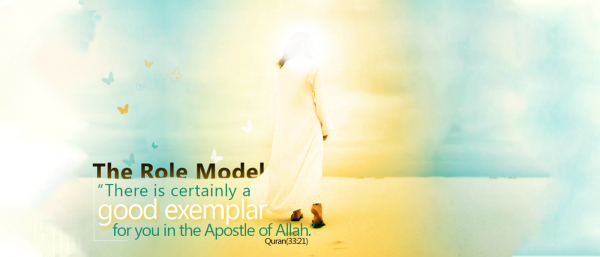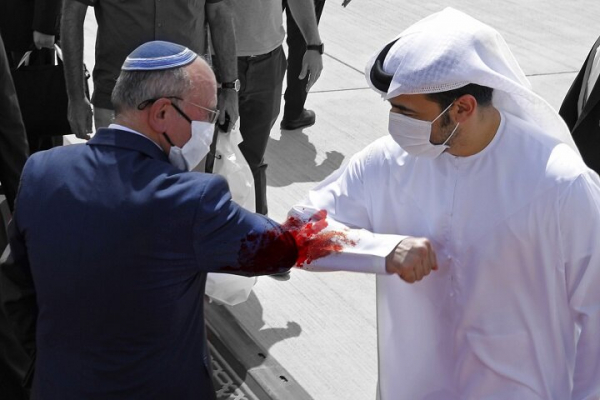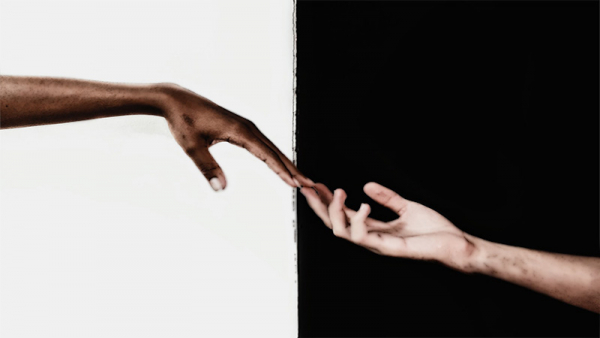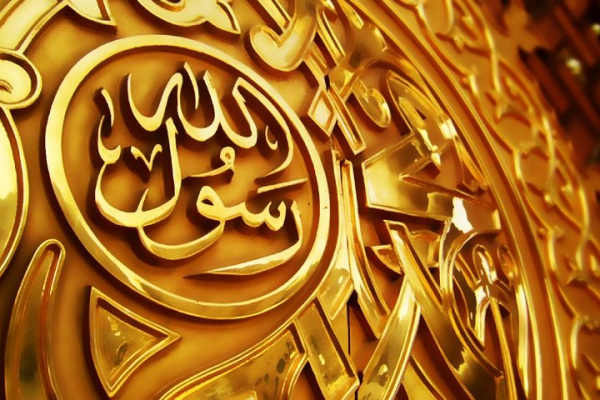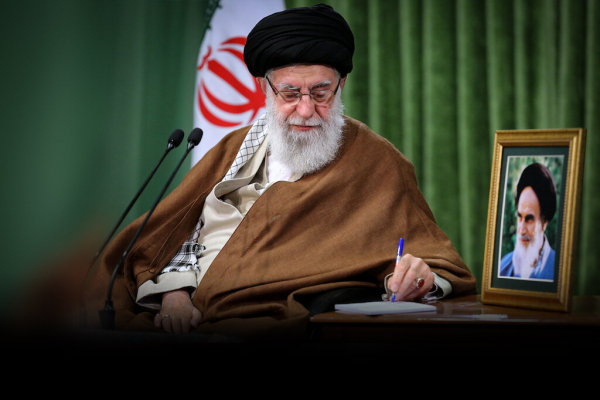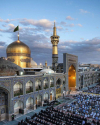In the Name of God, the Most Beneficent, the Most Merciful
The contemporary era—according to what many claim in the east and the west of the planet—is the era of freedom of expression and belief. No one has the right to bully or annoy anyone else for their religious beliefs or rituals, and anyone, anywhere in the world, is free to live according to their religion as long as their beliefs do not harm others. However, today we witness, in many parts of the world, people are attacked and brutally murdered for their religion and creed. This includes the killings of the Yezidis and Christians by ISIS in Iraq, to the murder and harassment of Muslim women in UK and U.S. for their head covers, as well as the barbaric massacre of Muslims by Buddhists in Myanmar. These incidents and the like have turned a slogan of 'religious freedom' into a baseless claim that no one abides by in action.
This article intends to show that, unlike the anti-Islamic claims and unlike what fake replicas of Islamic governments—like that of the ISIS—have shown to the world, Islam is a religion that respects and dignifies followers of other monotheist religions the most; in fact, the Islamic government is the safest place and region in the world for religious minorities to live in. Hence, we will try to answer why the Sira of the prophet of Islam is indicative of the right path and the purest form of Islam. Then we will examine various interactions among Muslims and non-Muslims from the viewpoint of Quran and the Islamic jurisprudence, finally we will take a look at Ayatollah Khamenei’s opinion on religious minorities.
The Sira and Manner of the Prophet of Islam in interaction with Non-Muslims
The Prophet of Islam (pbuh) was chosen for prophethood after the great, divine prophets of Christianity and Judaism. At that time, the residents of the Arab peninsula were either polytheists, worshipping multiple gods and idols, or followers of Christianity and Judaism. There were also some people who continued to believe in the religion of the Prophet Abraham (as). It was during such circumstances that the Prophet of Islam (pbuh) emerged to introduce, for the first time, the religion which would set forth a universal and pervasive call; namely, a religion that would more or less challenge all schools of thoughts and religions before it.
During the first years of the Prophet’s mission to invite people into Islam, his closest family members, including an uncle, did not only refuse his invitation, but also persecuted and ill-treated him. The Prophet of Islam (pbuh) and his few followers were placed under economic and political sanctions by his own kinship; furthermore, they were forced into exile in the Abu-Talib valley, for almost three years, where severe economic and commercial besiege were exerted on them. The sanctions were so harsh that they took the life of the closest individual to the prophet—his wife Lady Khadija.
Nevertheless, despite all the persecution, ill-treatment and hardship, the prophet of Islam never used aggressive or unpeaceful means to promote his religion: even after the victory of his social movement, and when Islam became the superior power of the Arab Peninsula, history testifies that he never considered taking revenge.
Friendship and tolerance are affairs of high importance in the social sira [life and manner] of the holy prophet (pbuh)
Friendship and tolerance are affairs of high importance in the social sira [life and manner] of the holy prophet (pbuh), in domestic as well as international aspects. This led to a reformation of the society, social relations, and affairs. If it was not like that, the ground would not have been paved for guidance and promotion of the message.
The almighty God praised the Prophet’s good temper and tolerance as follows:
“So by mercy from God [O’ Muhammad], you were lenient with them. And if you had been sever and harsh-hearted with them, they would have disbanded from about you. So pardon them and ask forgiveness for them…” [Quran 3:159]
His mercy and kindness were all-inclusive and he would treat with forgiveness those who had practiced hostility against him for years, including the pagans of Mecca. On the day Mecca was conquered, peacefully with no bloodshed, a companion of the prophet was saying: “Today is the day of murder, war and revenge; it’s the day of breaking the boundaries.”
The Prophet of Mercy (pbuh) immediately rejected and rebuked this slogan, he then said: “Today is the day of mercy”, “it is the day of mercy and kindness.”
Thus Mohammad (pbuh) would prevent any form of aggression and extremism against the opponents of Islam, and he relived the polytheists of Quraysh by stressing, “you may be as you are all free.”
“And we have not sent you except as a mercy to the worlds.”
God has introduced Prophet Muhammad (pbuh), His great Messenger, as pervasive and all-encompassing of mercy, whose kind behavior involved both Muslims and Non-Muslims:
“And we have not sent you except as a mercy to the worlds.” Quran [21:107]
In fact, Prophet Muhammad’s call to Islam was done in such a way that he would not force anyone into submission. He did not even subdue his greatest enemies at a time when he had authority over them and was capable of doing anything; rather, he only sent them out of the Islamic realm to prevent them from carrying out hostile actions.
After a while, a new religion was spoken of across the Arab world, eventually, reaching out to other countries. The number of Islam’s followers increased everyday, religious discussions and arguments about the new prophet, Mohammad (pbuh), and his new religion were widespread. Various individuals and religious bodies, from different places, would come to the Prophet of Islam to verify his message and challenge his religion.
God had ordered the prophet (pbuh), in the Quran, to allow even polytheists and pagans to come to him freely and safely, "if he seeks your protection to learn about your religion and research it.[1] Prophet Muhammad (pbuh) devoted a house in Medina for hosting these visitors, some visitors would also be hosted by the prophet’s companions upon his recommendation. When Christians came to visit, the Prophet (pbuh) would spread about his cloak for them to sit upon. The prophet would treat his opponents liberally; for instance, when he accepted the representatives of Najran Christian community, Mohammad (pbuh) criticized their belief in divinity of Jesus (pbuh) and invited them to follow Islam. However, he never forced them into accepting Islam; on the contrary, he allowed them to use the Mosque of Medina for their worshiping rituals.
Even when Mohammad (pbuh) decided to send out invitations to the emperors of other countries, including the Byzantine emperor and the Persian emperor, he asked them to either submit to Islam or to stay out of the way, so that nations could be exposed to the new religion and choose their religion freely.
The prophet sought to rectify situations wherein nations could make decisions based on their thoughts and ideology, and in a case where light is shed on truth they can accept the monotheistic belief, and cease to worship anything expect for God--without submitting to anyone’s orders but God's. In order for this responsibility to be carried out, it is necessary to fight against the powers that prevent nations’ from their freedom to explore, research, and convert to the Divine religion.
Prophet Muhammad’s peaceful manner towards the opponents encouraged many individuals, groups, and religious bodies to freely immigrate to Medina. Some of these groups had been sent to Medina to represent kings, such as the King of Ethiopia and the Himyarite Kingdom. History writes that about forty religious and political bodies visited Medina during Prophet’s time to learn about the new religion.
The best symbol of tolerance towards another religion was the Covenant of Medina
The best example of the tolerance shown by the Prophet to other religions was the Covenant of Medina, called the ‘Saheefah’ by early historians. When the Prophet migrated to Medina, his role as a mere religious leader ended: he was now the political leader of a state, governed by the precepts of Islam. This situation demanded that clear laws of governance be laid out, to ensure harmony and stability in a society once distraught by decades of war, that must ensure the peaceful coexistence of Muslims, Jews, Christians and polytheists. Due to this, the Prophet laid down a ‘constitution’ detailing the responsibilities of all parties residing in Medina, their obligations towards each other, and certain restrictions which were placed on each. All parties were to obey what was mentioned therein, and any breach of its articles was regarded as an act of treachery.[2]
Multiple examples of compassionate and humanitarian manners practiced by the Imams (as) have been narrated during the lifetime of Prophet (pbuh) and his household. The Imams were true followers of the Prophet, and a practical manifestation of pure Islam.
It has been narrated, throughout history, that during the time of Imam Ali’s ruling, he saw an old blind man who was begging on the streets. He was shocked to witness this, wondering how such things could ever exist under an Islamic government. He asked about it and was told, "This man is Christian." Imam Ali (as) said, "when he was powerful, you used his power, now that he has been weak, you have left him alone!?" (This act was against justice and compassion.) Then Imam Ali (as) said, "Donate to him from the Muslims’ public money" -- allocate to him an earning.[3]
In another incident, on one of his trips, Imam Sadiq (as) saw a man who was left helpless at a corner. He told one of his companions, "I think this man is thirsty. Bring him water." He went on (the companion) and then came back saying to Imam Sadiq (as) “This man is a Jew, I didn’t give him water.” Imam Sadiq (as) was moved upon hearing these words and said with a sad tone, "Is he not human?!"[4]
A Quranic-Jurisprudential glance, how Should Muslims Treat Non-Muslims?
Based on the Quranic-Jurisprudential perspective, non-Muslims are divided into four categories:
1. The Dhimmi [the protected persons]: the Non-Muslims who live in Islamic countries and are subjected to the laws of the country. The Islamic government is obliged to protect their lives, their properties, and to honor and defend their rights. They should pay taxes to the Islamic government: these taxes are in fact called the “Jizyah” derived from 'Jaza’--meaning the cost and reward the Islamic government receives for protecting the rights of non-Muslims.
2. Mu’ahid [the contractor]: the non-Muslims who has friendly relations with the Islamic government. They exchange ambassadors, commercial, economic, and cultural contracts or commit to covenants before one another through international organizations. These are all examples of 'contract'; thus, they should be dealt with based on the Islamic government’s commitments to them—whether directly or indirectly, via the international organizations—and must be mutually respected.
3. Muhadin [mild; non-violent]: countries which are neither at war nor have ties with the Islamic government. They neither exchange ambassadors nor do they have any contracts. They do not annoy one another. The Islamic government must maintain peace and mutual respect with such countries.
4. Muharib [at war]: groups or countries which are at war with Muslims and do not refrain from any form of sabotage against Muslims. Whenever these groups of countries launch sabotage or war against Muslims, other Muslims must take action to repel the animosity of these groups and countries.
Among these four groups, the Dhimmi have the highest status. They live in Islamic countries and the Islamic establishment has accepted them as a part of the nation; moreover, they have friendly relations with them.
Some Islamic scholars believe that only the People of the Book are considered among the Dhimmi, and those who are not the People of the Book cannot be considered among the Dhimmi. However, this is not what all scholars agree upon. Most jurisprudents believe that obtaining a contract with the Dhimmi is not limited to the People of the Book, but it encompasses any non-Muslim group, including the People of the Book, and followers of other religions--all of which can benefit from the contract.[5] The People of the Book are defined as followers of Christianity and Judaism, this also includes Sabaeans. From the viewpoint of the Quran[6], these religions are the divine religions and their prophets are considered, by Islam, infallible; hence, their prophethood must be accepted by Muslims. However, Islam believes that, over time, these religions have been afflicted with certain deviations and distortions at the hands of the malevolent and the enemies of God; hence, Islam has emerged to combat those distortions and complete these religions. [7]
In Islam the only war which is not prohibited is the one that is launched to achieve freedom, prevent breaching of a treaty, remove any obstacles in the way of logical promotion of Islam, and the conversion of those who want to embrace the religion but are prevented by their rulers.
In Islam the only war which is not prohibited is the one that is launched to achieve freedom, prevent breaching of a treaty, remove any obstacles in the way of logical promotion of Islam, and the conversion of those who want to embrace the religion but are prevented by their rulers.[8]
Over a span of 13 years, since the beginning of Prophet Muhammad’s prophethood which was spent in Mecca, no order to engage in war was revealed to the Prophet. He was always commanded by God to treat the enemies with forgiveness:
“So disregard them, and say, ‘Peace!’ Soon they will know.” [Quran, 43:89]
There are about seventy verses in the Quran where engaging in war and murder has been prohibited. It was not until the prophet Muhammad (pbuh) was forced out of Mecca, and they plotted to assassinate him in Medina that defense was acceptable:
“When the faithless plotted against you to take you captive, or to kill or expel you—they plotted and Allah devised, and Allah is the best of devisers.” [8:30]
It was also at that time the verse on Jihad was revealed to the prophet, wherein the reason why he had to engage in a war was explained:
“Those who are fought against are permitted [to fight] because they have been wronged, and Allah is indeed able to help them—those who were expelled from their homes unjustly, only because they said, ‘Allah is our Lord.’ Had not Allah repulsed the people from one another, ruin would have befallen the monasteries, churches, synagogues and mosques in which Allah’s Name is much invoked…” [Quran, 22:39-40]
Religious Freedom under the Islamic Republic of Iran’s Government
In Iran, after the victory of the Islamic Revolution, Islam was dubbed the source and origin for drafting all social and political laws. Thus, the Islamic government of Iran based its treatment of religious minorities in the country upon Islamic principles, and tried to best follow the example of Prophet Muhammad’s (pbuh) governmental laws in this regard. There are various religious minorities living in Iran including Jews, Armenians, Zoroastrians, and members of other minority religions. The government and the establishment of the Islamic Republic of Iran has always exhibited great respect towards these religious minorities and their rights.
"Zoroastrianism and the Iranian nation has always considered Zoroastrians, anywhere in the world, as their compatriots"
Ayatollah Khamenei, the Leader of the Islamic Revolution, in a meeting with participants during the Sixth Global Conference of Zoroastrians—which are a religious minority with Iranian roots—described the birth of Zoroastrianism as a divine moment in Iran, and called the religion a source of pride and honor for the Iranian nation. The Leader of the Revolution touched on the peaceful coexistence of the followers of the divine religions in Iran and said: “Among the followers of various religions, the Zoroastrians have closer ties with Muslims in various aspects. Islam acknowledges Zoroastrianism and the Iranian nation has always considered Zoroastrians, anywhere in the world, as their compatriots. The Iranian nation acts according to its responsibilities beyond its creed and borders, the Muslims, Christians, Zoroastrians, and Jews work together--hand in hand. Thus, the Zoroastrians of Iran and in other regions of the world should appreciate this pleasant, favorable situation, and make efforts to build up the free Iran while enjoying the divine blessings of this holy land.”
Elsewhere, in a meeting with Christian MPS and representatives, his Eminence said about the Christians and Armenians in Iran, “The Armenians and Christians are not strangers to the Islamic Republic of Iran and they are a part of the great Iranian nation: I personally have a very good feeling towards my Armenian compatriots.”
He further expressed gratitude towards Armenian and Christian compatriots for their precious efforts and services to Iran and the Revolution by stating, “During the Holy Defense era, our Armenian and Assyrian compatriots—like other members of Iranian nation—played a valuable role which is admirable.”[9]
The Leader further stated: “Whenever I go to the houses of Armenian and Assyrian martyrs—this year too, I’ve fortunately managed to visit the houses of a number of Armenian martyrs—I see how committed they are to their country. They have truly behaved in a committed manner. I remember that during the time of war, a number of Armenian Christians went to Ahwaz. I saw that a number of people were sitting inside the airport. I asked, ‘Who are these people?’ They said, ‘They are Armenians, they are going to the front lines for industrial affairs. They have come to render services.’ The Armenians are skilled at industrial and technical affairs. The late Chamran employed them. They made efforts, they rendered services and some of them were martyred.
One of the members of an Armenian family whom I visited last week had a son in the army. He said when his military service was over, he was unhappy because the war was continuing. He said, 'My military service is over. What should I do now?' Later on, it was announced that those who have done their military service for a few months should join the army again. He became happy with this call and he joined the front lines. Later on, he was martyred and his body was brought to us. We can witness such nationalistic feelings among our non-Muslim compatriots. Well, they made efforts and we hope that the Islamic government can carry out its responsibility in this regard. They really behaved in a committed— in the real sense of the word— way towards the country. [10]”
Moreover, Ayatollah Khamenei dubbed the Islamic Republic of Iran as symbolic of a progressive society, wherein all members from any religion live together in peace and tranquility, in a way that even non-Iranian non-Muslims eagerly play a role in the progress and development of the Islamic Iran.
In our country, fortunately, we have a peaceful coexistence of various religions; Jews, Christians, Zoroastrians, and Muslims all live together under the protection of the Islamic establishment
The Leader stated: “In our country, fortunately, we have a peaceful coexistence of various religions; Jews, Christians, Zoroastrians, and Muslims all live together under the protection of the Islamic establishment. They cooperate and coexist with us and play different roles in our society. The Islamic government considers itself responsible towards them as Iranian citizens and must act upon these responsibilities, which it does. [11]”
According to the viewpoint of Imam Khamenei, the religion of Islam and a true Islamic government is not against any of the monotheist religions, and it is not at war with the followers of any other religion. Islam is only against the oppressive and authoritarian regimes which look out for their own self-interest, and care purely for materialistic gains by means of dominating oppressed nations. Islam seeks to return the lost dignity of the oppressed people to them:
“Muslims can live in peace and tranquility with followers of various religions across the world.”[12]
“Islam is not hostile to other nations or to other religions. Islam is opposed to compulsion, oppression, arrogance and domination.”[13]
“We have learned from Islam that we should behave in a fair way towards the followers of other religions. This is Islam's command to us.” [14]
Ayatollah Khamenei emphasized on the peace-seeking and peaceful manners of Islam and the Islamic Republic towards followers of all monotheist religions, and he has criticized the mistreatment of Muslims happening in the West today. He made clear examples of the current socio-political situation in the West, urging them to change their hostile behavior towards Muslims. His Eminence compared Imam Ali’s (as) treatment of a Jewish woman to the treatment a Muslim woman received in Germany, and concluded that Islam is the religion of justice and fairness, one that creates a secure atmosphere for all religions.
He reproached Western security services and judicial entities for their maltreatment of Muslims and stated:
The issue isn’t about ‘why Muslims lack freedom in many of these countries?’ Rather, the issue is about ‘why don’t Muslims have any security?’
Today, what is witnessed in the world is that powers and those governments which claim to support justice do not at all behave in a fair way except in the inner circle of their narrow, limited, and oppressive polices. Today, you can see that in Europe and America, they use a massive amount of propaganda against Muslims. The issue isn’t about ‘why Muslims lack freedom in many of these countries?’ Rather, the issue is about ‘why don’t Muslims have any security?’ This is really the case. The movie American Sniper, one that was made in Hollywood, which has produced some controversy, encourages Christians or non-Muslims to harass Muslims, as much as possible; in fact, according to what others have said—we have not seen this movie—it encourages this action.
This behavior (harassment, torture) is not at all accepted by Islam. Islam believes in justice. On the issue of an attack [on the city of al-Anbar] the Commander of the Faithful (peace and greetings be upon him) said, "I have come to know every one of them whom encroached upon Muslim women and muahida women" [Nahjul Balaghah, Sermon 27]. In this sermon, he says that some people have entered the houses of Muslim and muahida women—muahid means Jewish and Christian individuals who have formed an alliance with Muslims and who live under the protection of Islam—to take away their ornaments and harass them. Then, Hazrat says, "If any Muslim dies of grief from this, he may not blamed, but there is justification for him before me." This is the Commander of the Faithful (a.s.). If a Muslim dies of grief due the harassment of non-Muslim women by the army of the enemies and looters—who entered their houses and took away their ornaments—there will not be blame on him, yet justification lies with the Imam (as). This is the viewpoint of Islam. We hope that by Allah's favor, we move forward in this direction. All people, including those of Christian world must know, that in our Islamic country, there is a lot of tolerance and respect for non-Muslims. This is while such tolerance does not exist in the Christian world. You have often heard that in western countries such as Germany, neo-Nazi youth--they are proud of being Nazis and they have called themselves, "neo-Nazis"--attack Muslims and their mosques. They brutally kill Muslims, yet there is no legal prosecution. We have not heard of them bringing prosecution against them. Another example is of a man who killed a young Arab woman wearing maqna'a or burqa [veil], she was killed because of her hijab and no one arrested the killer. The same is true of other places; unfortunately, these crimes are being committed in the US, and in other places and countries; meanwhile, they claim to support human rights. They should compare this with what is happening in Iran, because such acts are unheard of in Iran. In the Islamic era and in the Islamic Republic, harassing non-Muslims by Muslims is unheard of. Even religious youth, who are highly zealous and enthusiastic, do not allow themselves to attack a non-Muslims. I hope that Allah the Exalted gives you and us the blessing to carry out our responsibilities.”[15]
Henceforth, the stances taken by Ayatollah Khamenei, the Leader of the Revolution, are indicative of the fact that no disrespectful manner towards religious minorities is acceptable. All members of religious minorities in Iran enjoy civil rights: they have worked hard towards the development and progress of their country, alongside their compatriots since 1979 revolution. This religious freedom and security has turned Iran into one of the safest countries in the world for various religious minorities.
[1] And if any of the polytheists seeks your protection, then grant him protection so that he may hear the words of God. Then deliver him to his place of safety. That is because they are a people who do not know. [9:6]
[2] http://www.islamreligion.com/articles/207/viewall/tolerance-of-prophet-towards-other-religions/#_ftn22902
[3] Sheikh Hurr Ameli, Waseilul Shi'a, Vol. 11, p. 49
[4] Zeinul-'Abedin Qorbani, Islam and Human Rights, p. 405.
[5] Abu Ja'far Muhammad Ibn Al-Hassan Al-Toussi, Kitabul-Khalaf, Vol. 5. p.539.
[6] Indeed the faithful, the Jews, the Christians and the Sabaeans—those of them who have faith in God and the Last Day and act righteously—they shall have their reward from their Lord, and they will have no fear, nor will they grieve. 2:62
[7] Some interpreters of the Quran consider Zoroastrians as the People of the Book, too. This is based on Quran 22:17; “Indeed Allah will indeed judge between the faithful, the Jews, the Sabaeans, the Christians, the Magians and the polytheists on the Day of Resurrection. Indeed Allah is witness to all things.”
[8] Why should you not fight in the way of Allah and the oppressed men, women, and children, who say, ‘Our Lord, bring us out of this town whose people are oppressors, and appoint for us a guardian from Yourself, and appoint for us a helper from Yourself’? 4:75
[9] January 05, 2004
[10] January 26, 2015
[11] July 09, 2000
[12] April 04, 1993
[13] April 06, 2007
[14] January 26, 2015
[15] January 26, 2015
